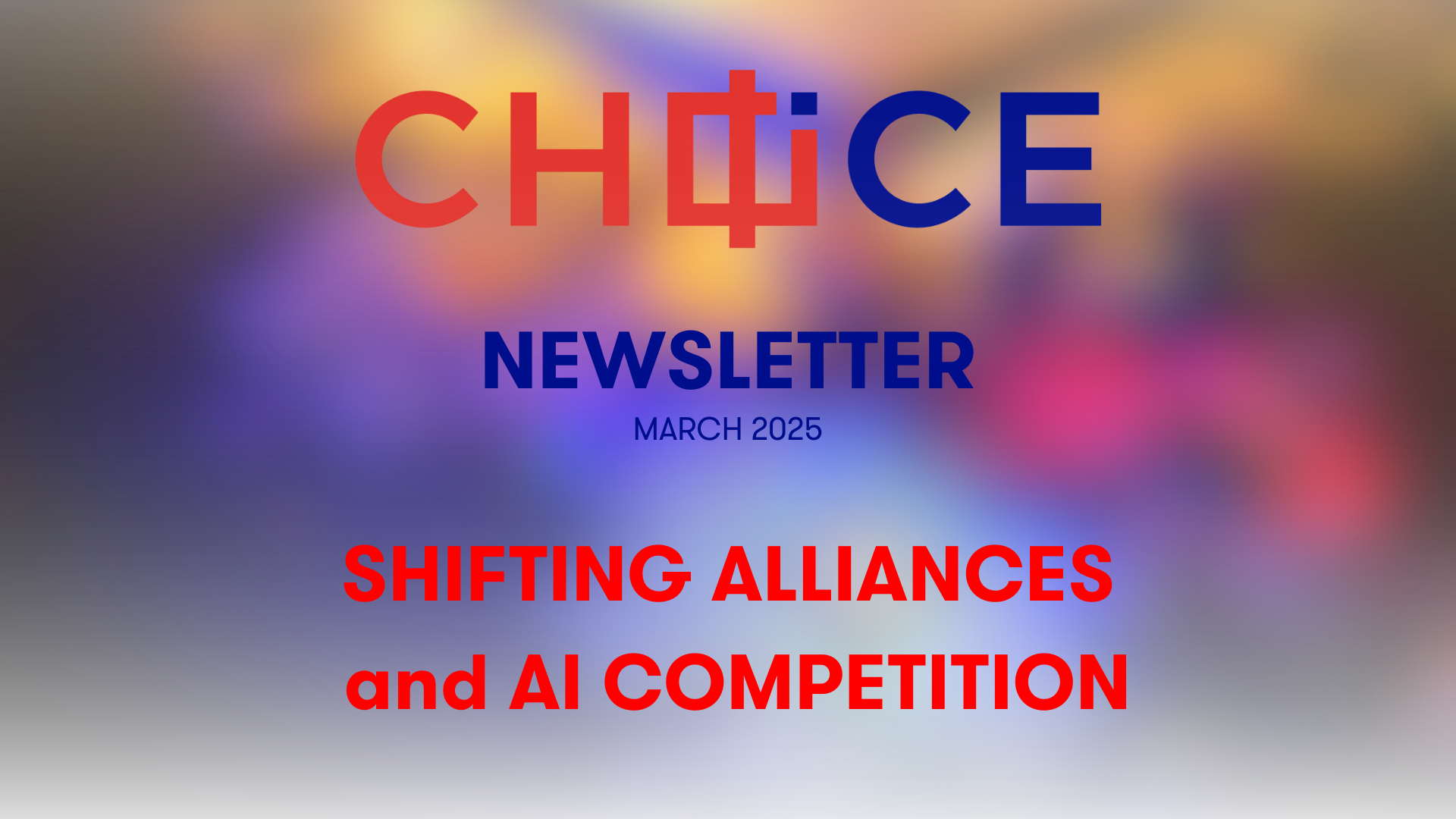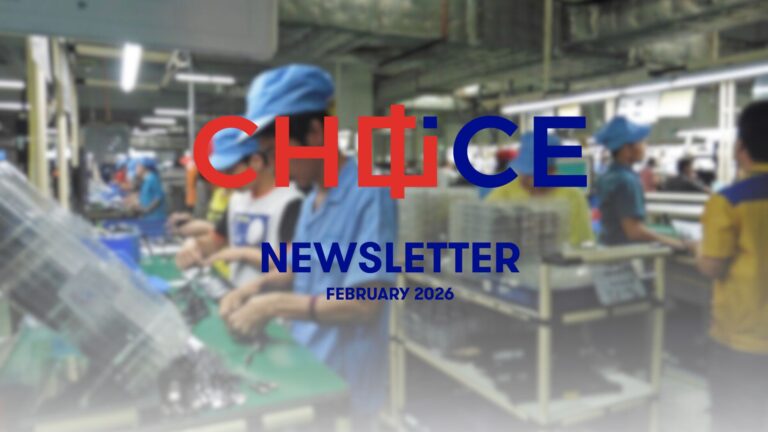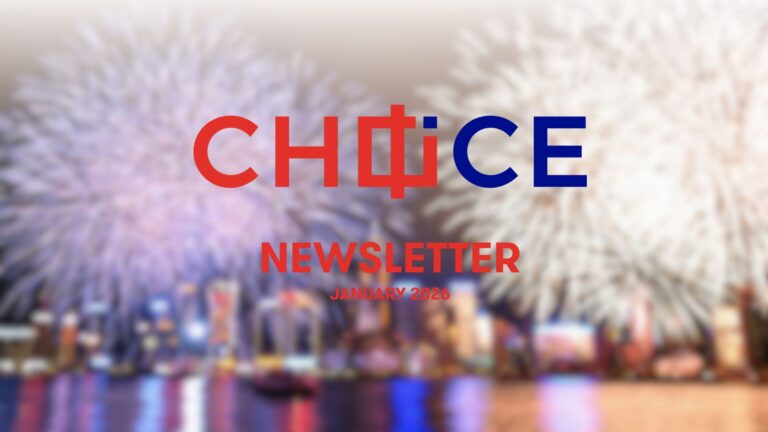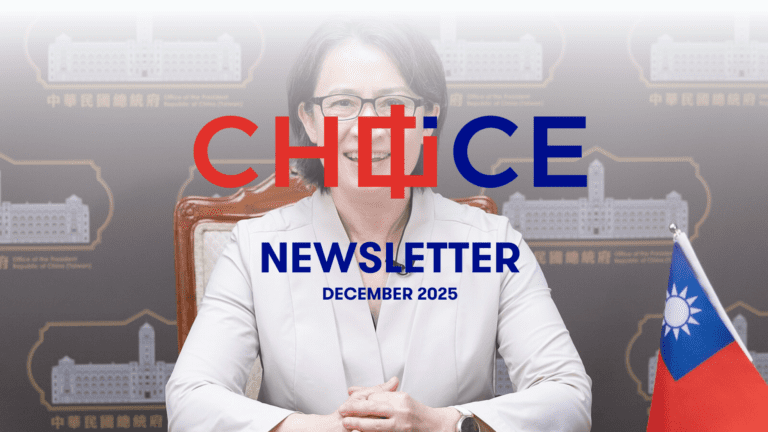CHOICE Newsletter: Shifting Alliances & AI Competition

Dear Reader,
The past month has been nothing short of eventful. Since the inauguration of Donald Trump, many in Europe have found themselves caught off guard. But let’s face it: the West, after all, was never a natural geopolitical entity – it was a pragmatic Cold War construct, bound together by the fear of Communism and led by the United States. But when that leadership wavers and the interests of its members begin to diverge, the cracks in this construct become ever more visible. Today, we find ourselves in a world where the US foreign policy shift – call it Monroe Doctrine 2.0 and a pivot to great power competition – raises unsettling questions about the transatlantic relationship. Unfortunate remarks on Ukraine, paired with strategic ambiguity on NATO commitments, have left many in Europe wondering: do we still share the same fundamental values, or are we drifting apart?
We will keep looking at these issues from the Central and Eastern European perspective. In this newsletter, we take a closer look at Europe’s ambition to play a greater role in AI diversification. Our colleague in Taiwan observes the rise of “angry men” in politics (as if the world needed more of them) – a phenomenon that is increasingly shaping the country’s political landscape.
But change isn’t just happening on the global stage; it’s happening in our own team as well. This month, we bid farewell to two valued colleagues – Johanna Mylonaki, our Communications Manager, who is off to the Diplomatic Academy, and our China Analyst Dominika Urhová, who begins her internship at NATO in Brussels. Their talent and dedication will undoubtedly serve them well, and we are confident that both institutions will benefit from their expertise, energy and enthusiasm. Wishing them godspeed! 🚀
Warm regards from Prague,
Ivana Karásková, CHOICE Founder and Lead
CHOICE Take

The Geopolitics of AI
The United States was long regarded as the leading force in artificial intelligence innovation, while China was seen as lagging behind. However, this perception changed dramatically just a few months ago. In September 2024, the relatively unknown startup DeepSeek grabbed attention by launching its DeepSeek V3 model. What made it stand out? It reportedly achieved performance comparable to GPT-4 while requiring only a fraction of the computing resources. Fast forward to January 2025, and DeepSeek introduced another innovation – the R1 reasoning model – claimed to rival OpenAI’s o1, released in September 2024. Perhaps even more surprising is that these breakthroughs were reportedly achieved at a significantly lower cost than those incurred by Western AI leaders.
The rapid emergence of China’s AI models has caused significant upheaval in the technology sector and international stock markets, leading to a sharp decline in US stocks following the introduction of the R1 model. Both investors and policymakers are now grappling with the potential long-term consequences. What are the implications for the future geopolitical landscape of AI? Can US export restrictions effectively limit China’s technological progress? And what role can Europe play in the intensifying AI competition?
DeepSeek’s success is noteworthy, especially given the strict US export controls limiting China’s access to semiconductor technology. Many believed these restrictions would hinder China’s AI development, but DeepSeek’s advancements suggest otherwise. Chinese companies are finding ways to progress despite US efforts. If DeepSeek’s methodology expands, it could revolutionize AI development economics, making sophisticated tools more accessible. Additionally, other regions that had previously trailed behind in generative AI development may now be able to create their own homegrown alternatives.
Developing independent AI models is essential, especially given the risks associated with data protection and the differing regulatory environments in China, the US, and Europe. OpenAI receives substantial funding from Microsoft, which owns approximately 49 percent of the company. While OpenAI’s GPT models have set the benchmark for generative AI, concerns persist regarding their training methods and reliance on extensive datasets, including personal data. The opacity surrounding data sourcing has raised alarms under EU privacy regulations, especially the General Data Protection Regulation (GDPR). Consequently, OpenAI is now under continuous scrutiny regarding its adherence to European data protection laws.
Meanwhile, DeepSeek’s success is attributed to abundant data availability, strong performance, and substantial state support. However, its privacy and data protection practices have sparked global concerns. The company’s privacy policy permits the collection of personal information, including profile details, user inputs, technical data, and usage metrics. This data is stored on Chinese servers and regulated by local laws, which might allow government authorities to access user data and facilitate data sharing with other companies, prompting a swift response from EU regulators. If DeepSeek intends to enter the European market, it may need to revise its privacy policies to comply with EU data protection standards.
Although the AI race has been dominated by the US and China, Europe is now making strides. The European Union is backing an ambitious project to develop its own large-scale AI model, OpenEuroLLM. This initiative, led by Charles University in the Czech Republic, aims to unite 20 European companies, research institutions, and centers, with an estimated cost of €34 million. Unlike American and Chinese models, OpenEuroLLM will focus on capturing Europe’s linguistic diversity. Researchers note that current AI training data is predominantly in English and a few dominant languages, meaning that European languages often account for only about three percent of these datasets. This limitation hampers the ability of existing models to understand idioms, cultural nuances, and linguistic subtleties effectively.
The project focuses on open-source development, allowing European companies to advance technology independently of US or Chinese firms. The aim is to bolster Europe’s AI ecosystem and minimize external dependency. OpenEuroLLM will also comply with GDPR and the new Artificial Intelligence Act, ensuring it remains a regulatory-compliant and reliable AI solution for Europe. Funded by the European Commission’s Digital Europe Program, this initiative represents a concerted effort to build a competitive and ethical AI framework.
As AI advances rapidly, the geopolitical stakes are higher than ever. DeepSeek’s emergence highlights China’s ability to contest US AI dominance despite export restrictions, while Europe’s OpenEuroLLM demonstrates a growing intent to establish a distinct AI path. The AI competition transcends mere technological innovations; it encompasses rule-setting, control over access, and the overall direction of AI development. One thing is clear: the AI landscape in 2025 is far more diverse than it was just a year ago.
By Dominika Urhová, CHOICE Analyst (based in Prague)
Taiwan in Focus
Taiwan Has an ‘Angry Men’ Issue
With an unemployment rate as low as 3.3 percent, Taiwan’s economy ranks 14th in the world in terms of GDP per capita, just above Hong Kong. However, these impressive figures mask a real challenge: high youth unemployment among those aged 15 to 29, where the unemployment rate reaches 11.4 percent, revealing a mismatch between a highly educated population and a job market reality. Moreover, the wage ceiling keeps average salaries in Taiwan much lower than in other Asian economies such as Japan or Singapore. This situation makes real living costs prohibitive, particularly for young people living in the Greater Taipei area, home to about one third of the island’s 23 million inhabitants, where rent continues to rise steadily.
While Taiwan is a modern democracy that promotes equality, traditional gender roles remain deeply ingrained. Many young men find themselves struggling financially and thus unable to meet societal expectations of success. And as recent shifts in Taiwan’s political landscape indicate, this frustration finds its expression in what has been termed ‘angry young men’ politics. This includes the rise of the Taiwan People’s Party (TPP), which positions itself as a third option to the traditional KMT-DPP divide, and which had secured 26.5 percent of the vote in the January 2024 presidential election. In mid-February 2025 the party elected its new leader, Huang Kuo-chang (黃國昌), who, like his predecessor Ko Wen-je, is known for his patriarchal and at times sexist rhetoric. Clearly, the ‘angry young men’ influence continues to shape the island’s political landscape
By Filip Noubel, CHOICE Analyst (based in Taipei)
CHOICE News
 Our team has launched a new podcast for Czech listeners, exploring China’s politics, economy, and global influence. Every two weeks, we bring expert discussions on how China shapes the world and its impact on Europe and the Czech Republic. The latest episode of Stíny Číny examines China’s influence in Serbia amid ongoing student protests. (listen on Spotify)
Our team has launched a new podcast for Czech listeners, exploring China’s politics, economy, and global influence. Every two weeks, we bring expert discussions on how China shapes the world and its impact on Europe and the Czech Republic. The latest episode of Stíny Číny examines China’s influence in Serbia amid ongoing student protests. (listen on Spotify)
 On February 17, our team hosted a roundtable with experts from diplomacy, business, and academia to explore new opportunities for international cooperation regarding the Global Gateway Initiative. Key takeaways will be published soon in an in-depth paper by our analyst Dominika Urhová. (find out more)
On February 17, our team hosted a roundtable with experts from diplomacy, business, and academia to explore new opportunities for international cooperation regarding the Global Gateway Initiative. Key takeaways will be published soon in an in-depth paper by our analyst Dominika Urhová. (find out more) Ivana Karásková spoke at the closed-door China Watchers conference in Brussels, sharing insights on China’s influence in Europe.
Ivana Karásková spoke at the closed-door China Watchers conference in Brussels, sharing insights on China’s influence in Europe. Our analyst Dominika Remžová provided commentary for Forbes, discussing China’s data collection practices and their implications for Western security. (read it here)
Our analyst Dominika Remžová provided commentary for Forbes, discussing China’s data collection practices and their implications for Western security. (read it here)
 We’re on Bluesky! Stay updated with our latest articles, insights, and news by following our account – don’t miss out on valuable content and updates. (follow us here)
We’re on Bluesky! Stay updated with our latest articles, insights, and news by following our account – don’t miss out on valuable content and updates. (follow us here)
This is the web version of our newsletter. If you’d like to receive the CHOICE newsletter in advance, straight to your inbox, sign up here:
Written by
CHOICE
CHOICE is a multinational consortium of experts providing informed analysis on the rising influence of the People’s Republic of China within the countries of Central and Eastern Europe (CEE).


